MARKET OVERVIEW
The South Korea healthcare cold chain logistics market is a part of the larger healthcare industry within the country. Transportation and storage of temperature-sensitive pharmaceuticals, biologics, vaccines, and medical devices are primarily the major activities involving this sector. Since these products have to be kept under tight temperature control to retain their efficacy and safety, this sector of healthcare cold chain logistics makes sure that they remain within predefined temperature ranges throughout the supply chain, from manufacturing to delivery at healthcare facilities.
The market stands at the forefront of change, driven by technological development, rising demand in biopharmaceuticals, and enhanced focus on infrastructure in healthcare within South Korea. A strong health care system and its commitment to innovation put South Korea in a very good position to enhance cold chain logistics capabilities. State-of-the-art technologies in IoT sensors and data loggers, which enable real-time monitoring of temperature and humidity levels, will enable the transport and storage of sensitive healthcare products in an optimal manner.
Besides, the South Korean government and private sector will make investments in the development of proper cold chain infrastructure. It shall manifest itself in new state-of-the-art storage facilities, next-generation transportation networks, and specialized logistics services fitted to the health sector. Thus, it will provide an increase in capacity and efficiency of the cold chain logistics system to meet the ever-growing demand for precision in temperature-controlled transportation.
The market may also witness increased integration between the pharmaceutical industry, logistics providers, and technology companies. The ties are likely to develop more solutions for enhancing the resilience and effectiveness of cold chains. For instance, blockchain technology is likely to be applied to enhance the supply chain traceability and transparency with a view to decreasing probable temperature excursions and ensuring healthcare product integrity.
Another important factor in the South Korea Healthcare Cold Chain Logistics market will be adaptation to regulations. The South Korean government is likely to adopt rigid standards and guidelines pertaining to the safety and quality of healthcare products. In this regard, high levels of compliance with regulations will be implied, thereby driving logistics providers toward making efforts for adopting best practices and technologies that can meet up to such standards.
Moreover, the market will also grow in step with an increased rate of chronic diseases, which will be associated with an increased rate in vaccines and biologics demand.
Increased demand for cold chain logistics will become all the more imperative as new therapies and treatments hit the market; most of these are temperature-sensitive. The COVID-19 pandemic brought to the fore the effectiveness of an efficient cold chain in the distribution of vaccines, and that awareness is likely to outlast the pandemic, continuing to drive improvements in the sector. Moreover, the market will leverage off South Korea's geographical position and its status as a logistics hub in the Asia-Pacific region. The well-built infrastructure including sea ports, airports, and highways—helps in the effective distribution of healthcare products to different customers both within and outside the country.
The South Korea Healthcare Cold Chain Logistics market will, in the near future, be of immense relevance to healthcare. Powered by technological progress, strategic investments, regulatory compliance, and increased collaboration, the market will change dramatically. These events will enable the security that is required concerning the safe and effective transportation and storage of temperature-sensitive health products, thereby underpinning overall improvements in healthcare outcomes for South Korea and beyond.
South Korea Healthcare Cold Chain Logistics market is estimated to reach $417.7 Million by 2031; growing at a CAGR of 0.05% from 2024 to 2031.
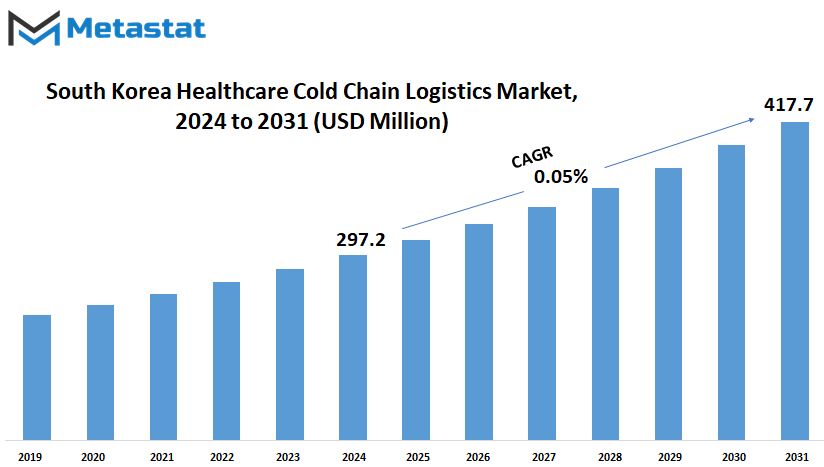
GROWTH FACTORS
The South Korea healthcare cold chain logistics market is growing at a tremendous pace, propelled by several significant factors. Of these, one major driver is the increasing demand for temperature-sensitive pharmaceuticals and biologics. These products demand strictly maintained temperatures from their supply to distribution so that the goods remain effective and safe. With the nonstop rise of medical innovation, more treatments and vaccines have been invented, which require ultra-precise temperature management from production to delivery. Thus, demand for advanced cold chain logistics solutions in the healthcare sector may increase.
Besides, regulatory requirements play a very pivotal role in shaping market dynamics. The governments enforce strict guidelines for the maintenance of quality and integrity of healthcare products during transportation and storage. These, in turn, call for proper cold chain logistics services to ensure at all times proper temperatures are maintained along the supply chain.
However, operational complexities and resultant expenses for cold chain infrastructure have been some of the challenges facing this market. Indeed, the management of temperature-controlled environments all along the extensive supply chains requires sophisticated technologies and specialized facilities that are quite costly to set up and maintain. These are therefore some of the entry barriers that may curtail the growth potential of the market fully.
Upgraded technologies and logistic capabilities will bring transparent opportunities to the South Korean healthcare cold chain logistics market. Inventions such as IoT-enabled monitoring systems, blockchain for advanced traceability, and robotic automation in handling procedures are likely to revolutionize the effectiveness and reliability of cold chain operations. These developments not only offer better temperature control but also enhance the logistic process to bring down operational costs and improve transparency and security across supply chains.
It isanticipated that the South Korea healthcare cold chain logistics market will grow at a sustainable CAGR in the future, driven by rising demand for temperature-sensitive healthcare products and strict regulatory requirements. Notwithstanding operational complexities and high costs continuing to remain significant problems, relentless technological innovation does open up remarkable potential for market growth in the near future. The stakeholders that can successfully execute their strategies to address these dynamics shall remain better placed in tapping the newer opportunities in healthcare cold chain logistics evolving in South Korea.
MARKET SEGMENTATION
By Product
Cold chain logistics management has gained much importance in the changing healthcare logistics environment in South Korea. This includes several categories such as biopharmaceuticals, vaccines, clinical trials, and other specialized items like radiopharmaceuticals and home care products that have very sensitive medical products and require efficient cold chain management for their efficacy and safety.
Cold chain logistics refers to the process of transporting and storing products that are susceptible to deterioration unless kept under strict temperature conditions, thereby maintaining their quality and effectiveness. This becomes quite paramount in the case of biopharmaceuticals and vaccines, in which even slight variations beyond the recommended temperature conditions seriously affect their potency and invariably render them useless.
A key market growth factor is that development in medical research, the increase in the demand for biopharmaceuticals, and expansion of activities of clinical trials will help boost the size of South Korea's cold chain logistics health care market. On a constant innovative development basis, this industry, therefore, demands hardened logistics solutions that can reliably maintain temperature integrity.
Biopharmaceuticals are one of the key elements of this market and represent complex medicinal products that are derived from biological sources. They include vaccines, insulin, and other therapeutic proteins that play a critical role in the treatment process of different diseases. As such, they require temperature control during transportation and storage to maintain their molecular structure and related therapeutic properties along the supply chain.
Another vital category of sensitive biologicals is vaccines, which prevent infectious diseases in the vaccinated individual. Their very efficacy directly links with their potency, right from production time until administration. Cold chain logistics ensures the viability of vaccines by storing them at recommended temperatures to safeguard public health efforts against preventable diseases.
Clinical trials also involve logistics management to be performed as they are supposed to assess the safety and efficacy of new treatments. In the process of a clinical trial, transport of investigational drugs or, for example, biological samples is associated with strict protocols for the protection of data integrity and patients' safety.
Apart from the biopharmaceuticals, vaccines, and clinical trials, the cold chain logistics market in South Korea further describes other specialized products that include radiopharmaceuticals used in diagnostic imaging and home care products that enhance patient comfort and adherence to treatment regimens.
This therefore makes it imperative to have in place a safe transport and storage system for temperature-sensitive medicines and vaccines in healthcare. Known as healthcare cold chain logistics, this step or process in the delivery of medicinal and vaccine products makes sure that from their respective production facilities down to end-users such as hospitals and clinics, they are effective and safe.
On the basis of application, the South Korean healthcare cold chain logistics market can be segmented into transportation, packaging, and instrumentation. Each of these segments plays a very crucial role in the maintenance of medical supplies throughout their journey. Transportation refers to the process of moving such sensitive products at a controlled temperature, usually by refrigerated vehicles or specialized shipping containers. This ensures that medications and vaccines stay within the specified temperature ranges so they do not degrade or lose their effectiveness.
The same attention would be paid to the packaging, through the design and application of insulated containers and passive thermal packaging materials that ensure temperature conditions are maintained during transport. Improvements in packaging technology continue to make this technology more efficient and reliable in performance, thereby safeguarding and providing a longer shelf life to the medical products.
Instrumentation refers to control and monitoring equipment used along the cold chain logistics process. These devices include temperature sensors, data loggers, and monitoring software, which track real-time information with respect to temperature conditions. Through the continuous monitoring of these parameters, logistic providers could very well head off temperature excursions in advance and ensure compliance according to regulatory standards.
With emerging technological innovations and increased emphasis on the quality and safety of healthcare, the South Korean healthcare cold chain logistics market is predicted to grow in the future. Other new innovations, such as IoT integration into monitoring systems and blockchain usage for supply chain transparency, are likely to increase the reliability and efficiency of cold chain logistics operations.
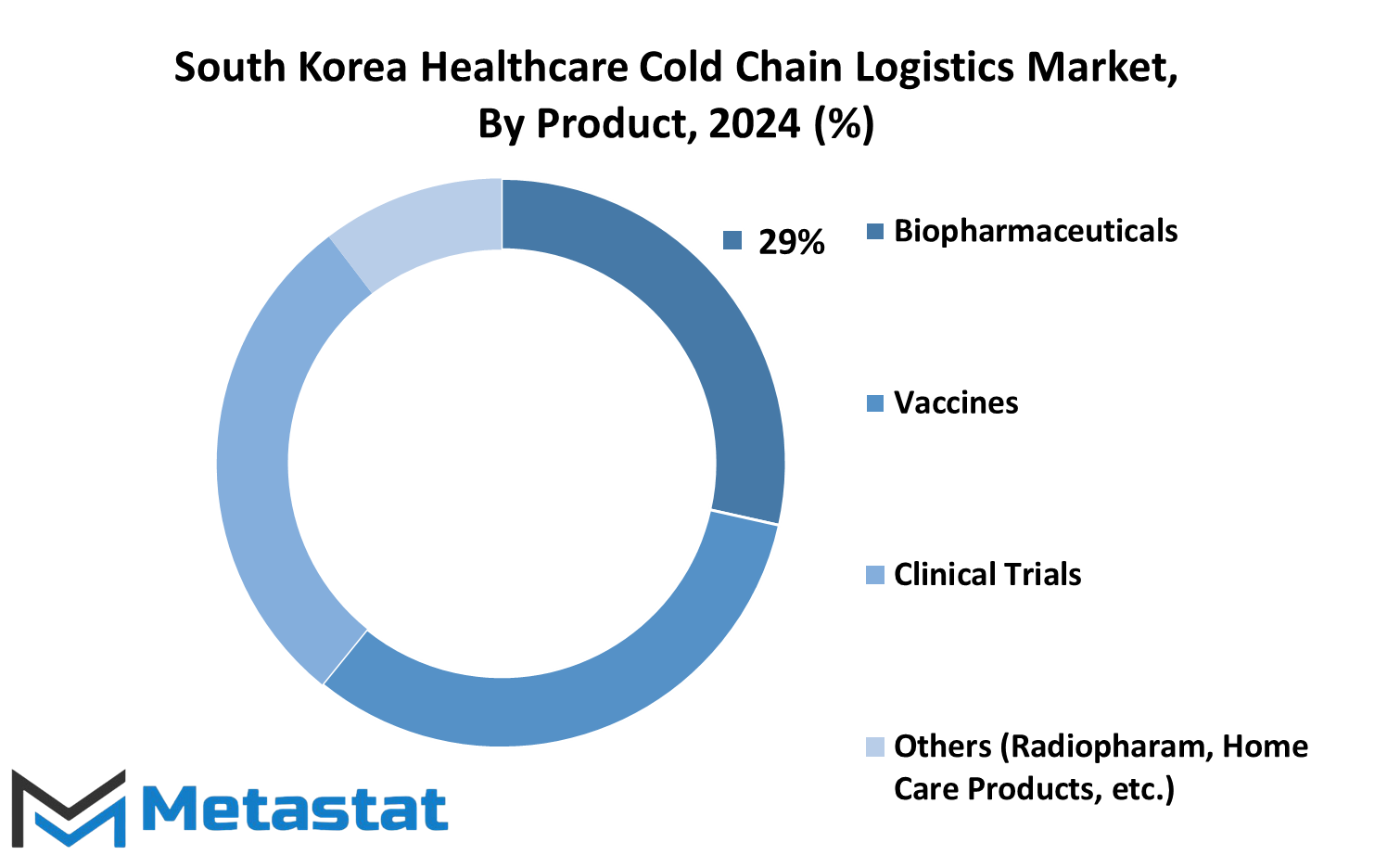
By Region
The cold chain logistics in healthcare ensures that most medical supplies, which are usually temperature-sensitive in nature, retain their integrity and overall effectiveness while in transport or storage. This is of importance in South Korea, whereby continuous striving for improvement within the health sector is requisite for satisfying an ever-increasing population.
On a macro level, the South Korean cold chain healthcare logistics market is further segmented into East, West, Southwest, and Southeast. In addition, each region is peculiar, with problems and chances that differ from others. Across variables such as geography, healthcare infrastructure, and population distribution, these areas vary significantly.
This is because dense urban populations—the major cities, such as Seoul, Incheon—and various healthcare institutions can be found here, so there is huge demand for cold chain logistics. Besides being extensive, logistics networks in this region must also be agile enough to make on-time deliveries of vaccines, biologics, and pharmaceuticals without any compromisation on the quality front.
Moving on to the West region, featuring locations like Daejeon and Gwangju, the most significant considerations concern the need to balance urban development with rural healthcare accessibility. For cold chain logistics players, this could very well mean trekking to far-flung locations while maintaining stringent temperature controls that keep sensitive medicinal products intact.
In the Southwest region, which includes cities such as Gwangju and Jeonju, the focus is on the integration between the logistics system with industry and technology development. Enhancements in packaging and monitoring technologies will become very instrumental in increasing the efficiency and reliability of cold chain logistics operations across this region.
The Southeast region, with cities like Busan and Ulsan, has difficulties inherent in its coastal geography. Here, a large degree of maritime transport comes into the mix of cold chain logistics and requires specialized infrastructure and protocols to ensure uninterrupted supply chains.
COMPETITIVE PLAYERS
Cold chains in the flow of healthcare products, such as vaccines and biopharmaceuticals, are extremely critical to their effectiveness and safety. Indeed, one of the challenge-pressing issues facing South Korea, together with other countries, is how to manage these logistics efficiently in the face of rapidly growing healthcare demands.
The South Korean Healthcare Cold Chain Logistics market is very competitive, with only a few major players who strive to hold leading positions. Companies belonging to this segment and standing at the forefront of this dynamic sector include FedEx Corporation, United Parcel Service of America, Inc., DB Schenker, AmerisourceBergen Corporation, Cardinal Health, Inc., Kuehne + Nagel International AG, World Courier, QuickSTAT, Marken, and DHL Group.
Effective cold chain logisticians take extra care in ensuring that health products—vaccines, blood samples, and biopharmaceuticals, for example—are maintained within specific temperature ranges from sourcing to delivery. This close attention is provided with handling, since minor deviations from the recommended temperatures could bring down the potency and safety of these very products.
In the near future, it will be technological innovation that will significantly enhance the efficiency and reliability of health care cold chain logistics. Probably, new technologies like IoT sensors and blockchain technology are bound to take over in the area of tracking and monitoring. Such technologies will grant access to real-time data on temperature, humidity, and location, among other factors, and thus make possible proactive intervention to avert possible deviations that may affect product quality.
Moreover, the COVID-19 pandemic really nailed the need for a strong healthcare logistics system. The urgent global demand for vaccines underlined what was necessary in the field of logistics—streamlined cold chain logistics able to rapid deployment and distribution. Such experience has increased investment in infrastructure and technology to bolster resilience and responsiveness to future health crises.
It is in the light of these that the competitive scenario for South Korea's Healthcare Cold Chain Logistics market would currently be one dominated by a few large global players who are using advanced technologies to ensure the safe and efficient delivery of temperature-sensitive healthcare products. Further, as technology progresses, so will the ability and effectiveness of cold chain logistics—cementing their place as an integral part of the public health ecosystem and moving forward medical innovation. This, therefore, points to the ongoing evolution that underlines the need for adaptability and innovativeness by any stakeholder towards meeting emerging demands in the healthcare sector.
South Korean Healthcare Cold Chain Logistics Market Key Segments:
By Product
- Biopharmaceuticals
- Vaccines
- Clinical Trials
- Others (Radiopharam, Home Care Products, etc.)
By Segment
- Transportation
- Packaging
- Instrumentation
By Region
- East
- West
- Southwest
- Southeast
Key South Korea Healthcare Cold Chain Logistics Industry Players
- FedEx Corporation
- United Parcel Service of America, Inc.
- DB Schenker
- AmerisourceBergen Corporation
- Cardinal Health, Inc
- Kuehne + Nagel International AG
- World Courier
- QuickSTAT
- Marken
- DHL Group
WHAT REPORT PROVIDES
- Full in-depth analysis of the parent Industry
- Important changes in market and its dynamics
- Segmentation details of the market
- Former, on-going, and projected market analysis in terms of volume and value
- Assessment of niche industry developments
- Market share analysis
- Key strategies of major players
- Emerging segments and regional growth potential




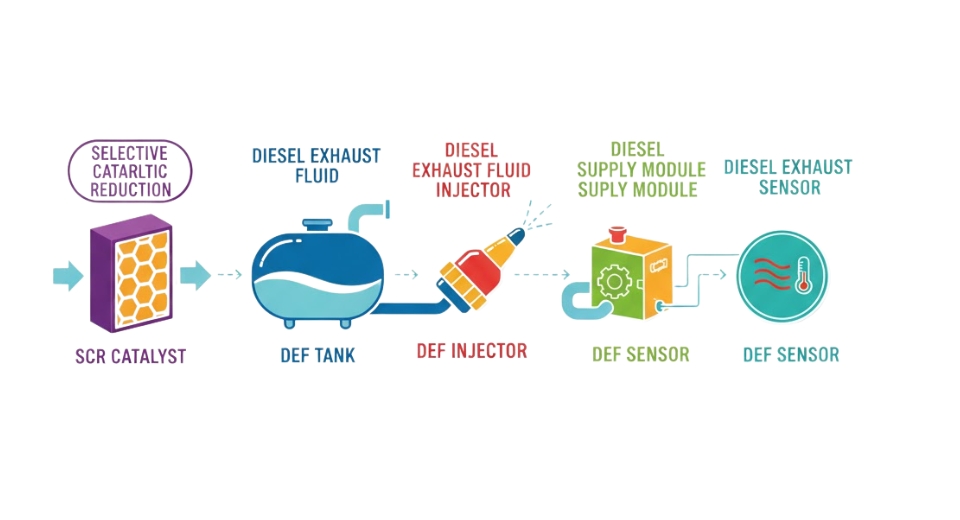
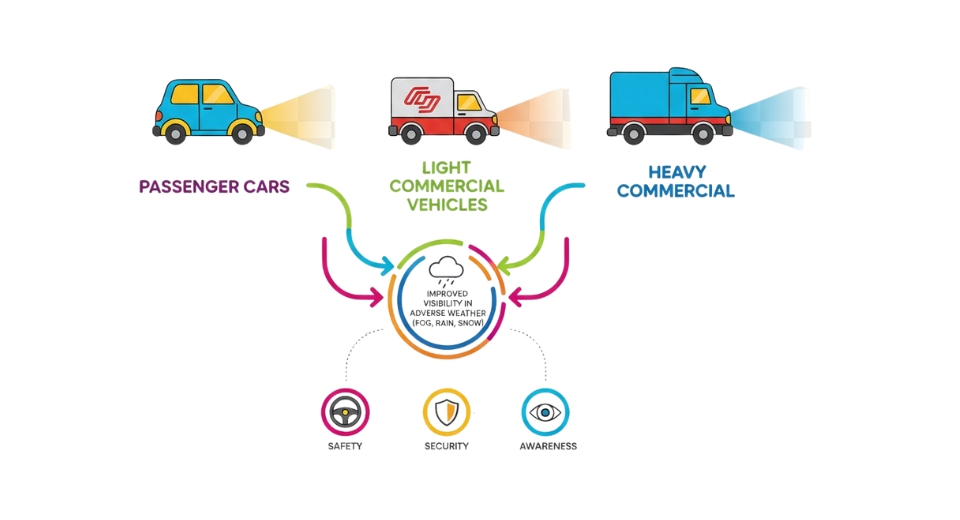
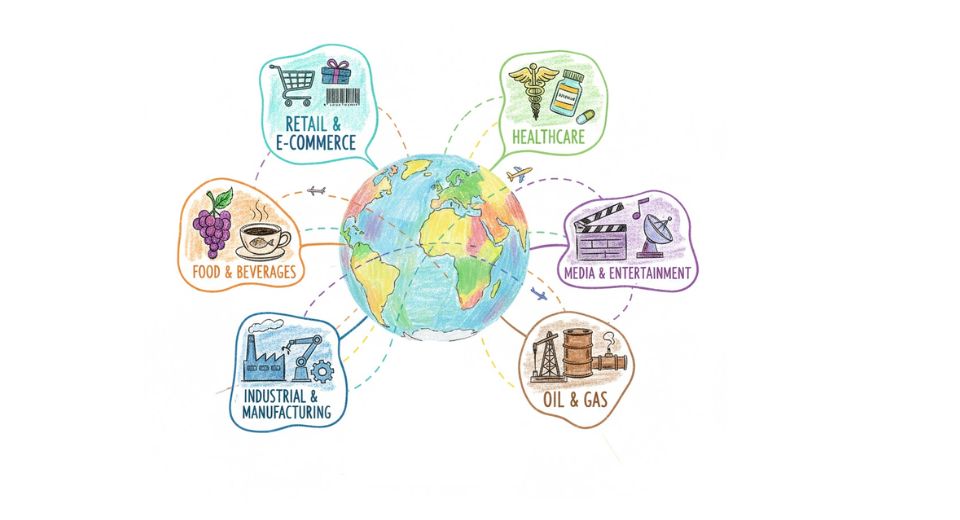

 US: +1 3023308252
US: +1 3023308252






